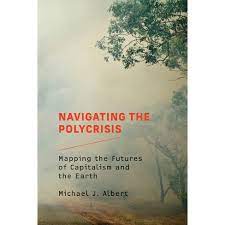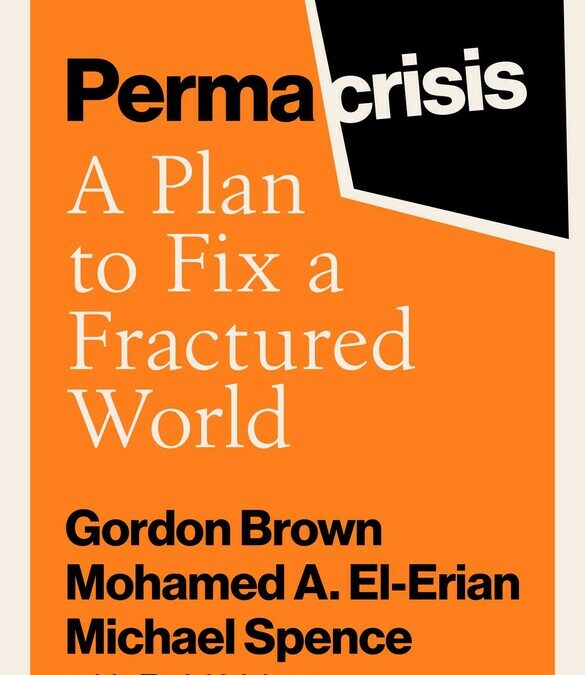As water becomes a weapon of war, we must focus on cooperation and peace
by Peter Gleick in The Guardian…Record increase in water-related violence shows how urgently we need to reduce these tensions between countries
Russia and Israel lead global surge in attacks on civilian water supplies
by Nina Lakhani in The Guardian…Water-related violence surged to an all-time high in 2022 – driven in large part by Russia’s war in Ukraine and Israeli attacks against Palestinian water resources in the West Bank.
Donella Meadows recommendations for how to dance with and intervene in systems
Wahl writes……Donella makes the crucially important point that the most transformative and effective leverage points are addressed by acting at the level of paradigm-change, by addressing the culture change that would shift the dominant believes about the system. Even more effective, according to Meadows, is the ability to transcend paradigms and acknowledge the wisdom that diverse, possibly even conflicting perspectives can bring to a situation in full recognition that each paradigm also brings with it, its own limitations and blind spots.
Multisolving: making systems whole, healthy, and sustainable
by Elizabeth R. Sawin, et al, in Stanford Social Innovation Review…Crossing system boundaries to build partnerships and solve shared problems will strengthen communities and build resilience.
A global resilience index: supporting climate adaptation of global infrastructure systems
by Prof Jim Hall of Oxford University….A new Global Resilience Index, developed by researchers at the Environmental Change Institute, is helping policy makers understand climate risks to global infrastructure systems and plan appropriate investments and interventions.
The ‘flickering’ of Earth systems is warning us: act now, or see our already degraded paradise lost
by George Monbiot in The Guardian…Every hour is now an “if only” moment: offering a better chance of avoiding collapse than the hour that follows. Grim as our time on Earth is, future generations will look back on it as a golden age. A golden age of wildlife, of mild weather, stability, prosperity, of opportunities to act. Our living world is a grey shadow of what it once was, but a vibrant paradise in comparison with what it will be. Unless, unless.
Advancing the conversation around building a resilient future
Answer from Nathanial in the interview…..Innovation, knowledge and policy are key interlinked areas for GRP to ensure that we advance and strengthen resilience. Embracing resilience encourages innovation in finding new and flexible solutions that can adapt to changing circumstances. This fosters a culture of experimentation and learning, which is essential for addressing complex challenges effectively. A strong scientifically-backed understanding of resilience, including measuring and testing resilience is also fundamental. This includes ensuring that resilience encompasses more than just “bouncing back” to the status quo, but that it also encompasses adaptive and transformative capacities and allows systems to continue to evolve in spite of shocks and stresses.
2023 Executive Summary
from the Executive Summary UNEHS…Today, we are moving perilously close to the brink of multiple risk tipping points. Human actions are behind this rapid and fundamental change to the planet. We are introducing new risks and amplifying existing ones by indiscriminately extracting our water resources, damaging nature and biodiversity, polluting both Earth and space, and destroying our tools and options to deal with disaster risk.
Climate change has toppled some civilizations but not others. Why?
by Kate Yoder in Grist…Of course, there’s no guarantee that a better system will replace the vulnerable, unequal one after a collapse. “You still have to do the work of putting in the reforms, and having the support of those in power, to be able to actually set and reinforce these kinds of revisions,” Hoyer said. “So I would argue, if that’s the case, let’s just do that without the violence to begin with.”
Rehabilitating Lahaina
by Travis Hartman, et al. in Reuters…After Hawaii’s worst wildfire killed scores of people in August, local and federal agencies are reckoning with the toxic chemicals created when a built environment burns
The world’s top industrial countries are in treacherous waters
by Richard Heinberg in Resilience.org…Whatever is coming will be as historically unique as our present circumstances. The ever-louder rumblings from just over the horizon suggest that, whatever it is, it’s not far off.
Drought in Brazil’s Amazon reveals ancient engravings
in Phys.org…”Unhappily it is now reappearing with the worsening of the drought,” Carneiro said. “Having our rivers back (flooded) and keeping the engravings submerged will help preserve them, even more than our work.”
The Nose Is For Eating Too
by Gita Viswanath in On Eating….Defying the doctor’s predictions, mother recovered sufficiently enough to get rid of the NG tube. Alas! She insists she cannot taste anything now!
Why so much is going wrong at the same time
By Thomas Homer-Dixon on The Cascade Institute…Most obviously, given that Earth’s worsening energy imbalance seems to be emerging as the single most powerful driver of crises across multiple ecological, economic, and social systems, humanity needs to cut greenhouse gas emissions to near zero as fast as possible. Realistically, though, we won’t cut them deeply enough soon enough to keep the imbalance from having devastating impacts, not least on the world’s food supply.

Navigating the Polycrisis
By Michael J. Albert…A much-needed work of global futures studies, Navigating the Polycrisis brings the rigor of the natural and social sciences together with speculative imagination in order to illuminate and shape our global future.

Permacrisis
By Gordon Brown, et al in Permacrisis….The longer a problem goes unresolved, the worse it will get; that’s what happens in a permacrisis – and that’s why we must act now.

